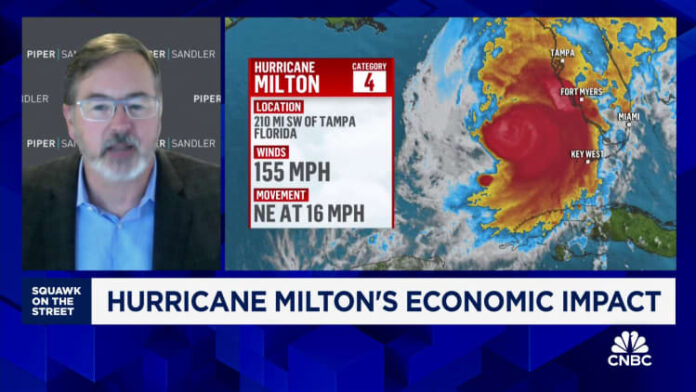Visoot Uthairam | moment | Getty Images
Home repairs and renovations are expensive. To reduce costs, one in three homeowners are willing to hire a contractor with gaps in their resume.
According to a new report from Clever Real Estate, a real estate data website, about 33% of homeowners surveyed would consider hiring a builder with a dubious reputation to save money.
In general, homeowners say reputation is the most important factor when hiring a contractor (25%), followed by experience (23%), cost (19%), personal recommendations (13%), availability (11%) and the estimated project schedule (10%). In mid-August, Clever surveyed 1,000 homeowners in the US about their renovation decisions.
This trade-off between contractors could be more expensive in the long run, experts say. A questionable contractor is “someone who isn't entirely honest about the price, may overestimate their abilities, doesn't produce quality work, or simply doesn't show up to the project,” said Jamie Dunaway-Seale, author of the Clever report.
“This is someone you might want to avoid,” said Angie Hicks, co-founder of Angi, an online marketplace for contractors. “I would rather hire someone new to the industry than someone with a questionable reputation.”
More from Personal Finance:
Important steps for filing a home insurance claim after a natural disaster
The following are not covered by flood insurance
How to prevent hurricane damage to your home
The risk of contractor fraud also increases after a natural disaster, said Loretta Worters, a spokeswoman for the Insurance Information Institute.
“A lot of times these people come in and say they're going to do something for you, take your money and leave,” Worters said.
The Justice Department and the Consumer Financial Protection Bureau warned consumers Wednesday about potential fraud, price gouging and collusion following natural disasters.
“You don’t want to make a bad situation worse,” Hicks said.
Here's what you should consider when hiring a contractor.
Contractor fraud can occur after natural disasters
Analysts say Hurricane Milton could be a “once in a century” storm with the potential to cause record-breaking damage when it makes landfall on Florida's west coast on Wednesday or early Thursday.
As homeowners juggle insurance claims and restoration efforts after back-to-back storms, you should keep in mind who you hire as a contractor.
You have to be “really careful” when it comes to contractor fraud because you “could be twice a victim of the storm and the fraudulent person,” Worters said.
Roofers are among the most common jobs needed to be hired after a hurricane, Hicks said.
“A roof lasts more than 20 years,” Hicks said. “You want to make sure you’re working with a reputable local company that will also guarantee this work.”
Even though it's a really difficult time, it's important to do your due diligence and make sure the person you hire is certified, experts say.
3 Ways to Screen a Contractor Before Hiring
Although most professional contractors are reliable, negative experiences contribute to a bad reputation among consumers, Clever said in the report.
“A lot of people actually have bad experiences, and that makes it harder for the honest ones,” Dunaway-Seale said.
Although it can be difficult to evaluate contractors, experts say there are some steps you can take to ensure you're working with a reputable person.
Here are three ways to get started:
1. Ask for reviews and references
“The first thing you want to do is check [the contractor’s] Reputation,” Hiccup said.
If possible, start with professionals who have good reviews: Ask friends and family for recommendations who have had a good experience with a contractor in the past, Dunaway-Seale said.
From there, look for online reviews and ask for references, experts say. When you start getting estimates, use references to check how that company or professional has handled jobs in the past, Hicks said.
Asking a contractor if they would put you in touch with a previous client can be a litmus test, Dunaway-Seale said.
“If they’re not willing to do that, that could be a red flag,” she said. “Maybe they don’t think anyone would recommend them positively.”
2. Verify their credentials
Check a contractor's credentials and licenses to see if they have the necessary experience to tackle the job, Hicks said.
According to the National Association of Home Builders, all professional contractors should be insured and able to provide certification. Although not all states require a license, contractors in states that require a license should provide a copy, the NAHB said.
The FTC and CFPB provide consumers with resources to help prevent fraud, prepare for and respond to natural disasters, and manage your finances when such events occur.
“Sometimes the state insurance department also has a list of different contractors on their website,” Worters said.
3. Pay attention to warning signs
Early interactions can give you a sense of how the contractor operates and help you decide whether you feel comfortable giving them your business.
“Do they give you written estimates? Are they detailed? “Are the payments listed?” said Hicks.
“It's really important that payments for larger projects are outlined in your estimates and how they will be managed,” she said. Typically, advance payments should be no more than 10 or 20%; You shouldn't make a large down payment upfront, Hicks said.
It's also a good idea to get two or three estimates because that way you can determine if there are any outliers in pricing, Hicks said.
“If a deal seems too good to be true, it probably is,” she added.
















